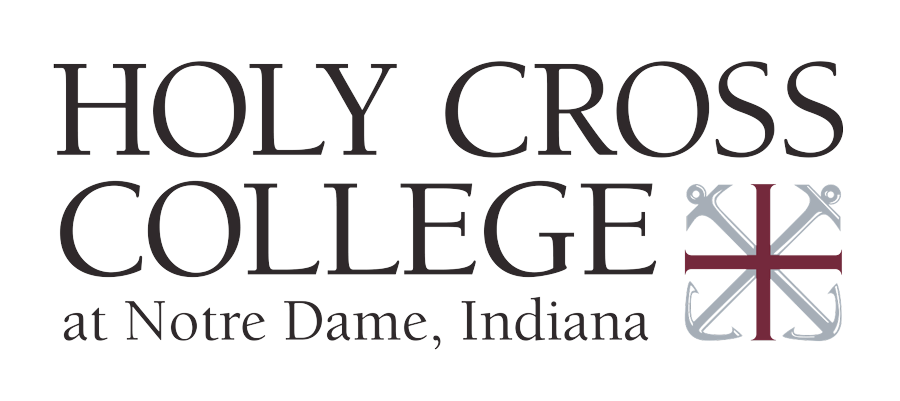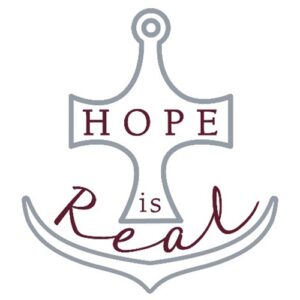
Hope in God’s Plan
Our Lenten theme, “Jeremiah 29:11 – Hope in God’s Plan,” focuses on trusting God’s purposeful plan for our lives, even in difficult times. As we reflect on this verse, we join with the universal Church in the Jubilee Year theme “Pilgrims of hope”, reminding ourselves that God’s plans bring a future filled with promise, guiding us through our Lenten journey with faith and expectation.
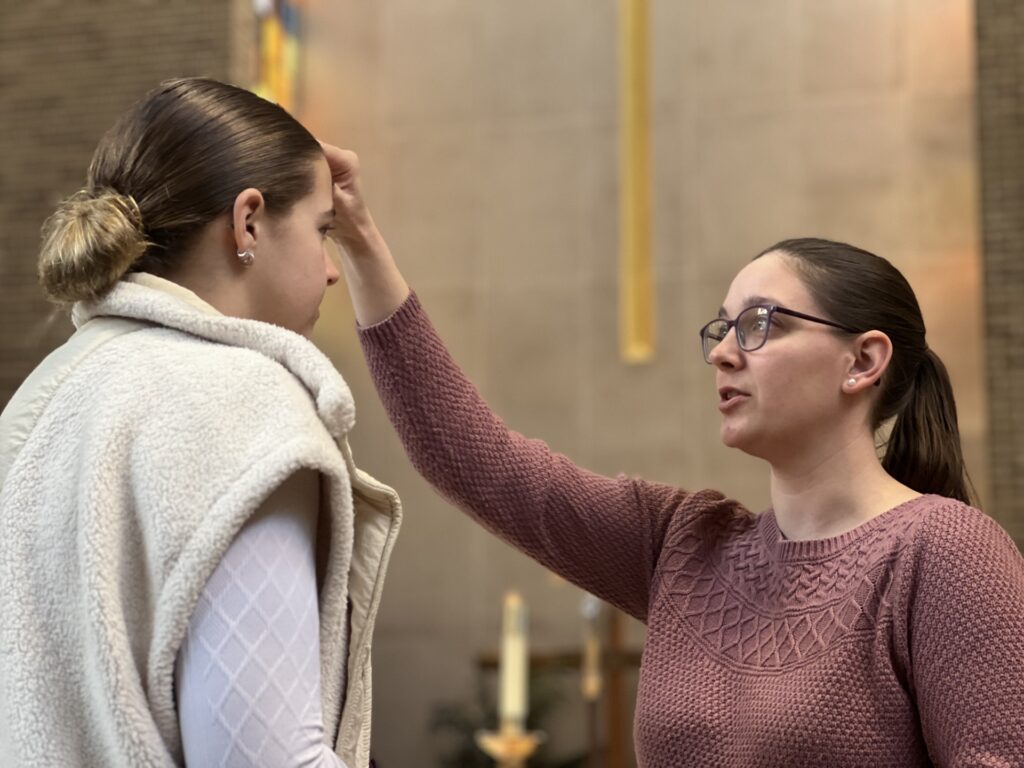 LENT 2025 Hope in God’s Plan
LENT 2025 Hope in God’s Plan
Jeremiah 29:11-12 For surely I know the plans I have for you, says the Lord, plans for your welfare and not for harm, to give you a future with hope. 12 Then when you call upon me and come and pray to me, I will hear you.
The liturgical season of Lent begins today. We start our journey with the whole Church as day by day we move toward the Triduum, the three days of praying through Christ’s passion to His resurrection. In this jubilee year, Pope Francis has called us to be “pilgrims of hope” who walk together in prayer, steadfast in our commitment to become more aware of the need to encounter one another in Christ’s beloved community. Ash Wednesday begins that journey each year, reaching into God’s loving patience and mercy as we make our way through these next 40 days. At Holy Cross College, we have turned to the words of the prophet Jeremiah 29:11-12 to reflect on God’s desire to gift us with future filled with hope. When I read Jeremiah’s passage above, I linger over the last sentence. What a hopeful image to see our loving God waiting for us to call upon him with our prayers anchored in the promise that we will be heard echoed here, “Then when you call upon me and come and pray to me, I will hear you.”
Lent, with its reference to the spring season, has traditionally been the time to attend to what we are going to do…fast from foods or things we enjoy, pray more, and offer alms to provide for the needs of others. The perennial question of “what am I going to do?” might be missing the point of this penitential season. I wonder, as we move out of the darkness and silence of winter and into the warmth of an emerging spring that the intentions of our Lenten promises are best understood as being open to what God is doing in our lives when we pray more, fast and give alms. How do my efforts of fasting open my heart to encounter God’s desire to listen to me and hear me. In what ways do my prayers rest in the confidence that God is patient and waits for me to turn toward him? How does the offering of alms reflect the love of neighbor in my heart, which God is continuously filling with compassion and justice? I wonder what is possible if this Lent we center our lives on the promise of the forgiveness our sins that opens us to the true transformation to become more like the Christ who journeys toward the Cross, confident in the hope that it brings for humanity and creation.
This is a call to pray together as “Christ’s beloved community” at Holy Cross College and be embraced by a loving God whose promise is filled with hope for the future we share with all of humanity. As in the tradition of the Congregation of Holy Cross, with a God who is ever listening and hearing, we can proclaim, “Ave Crux, Spes Unica; Hail Cross, Our only hope.”
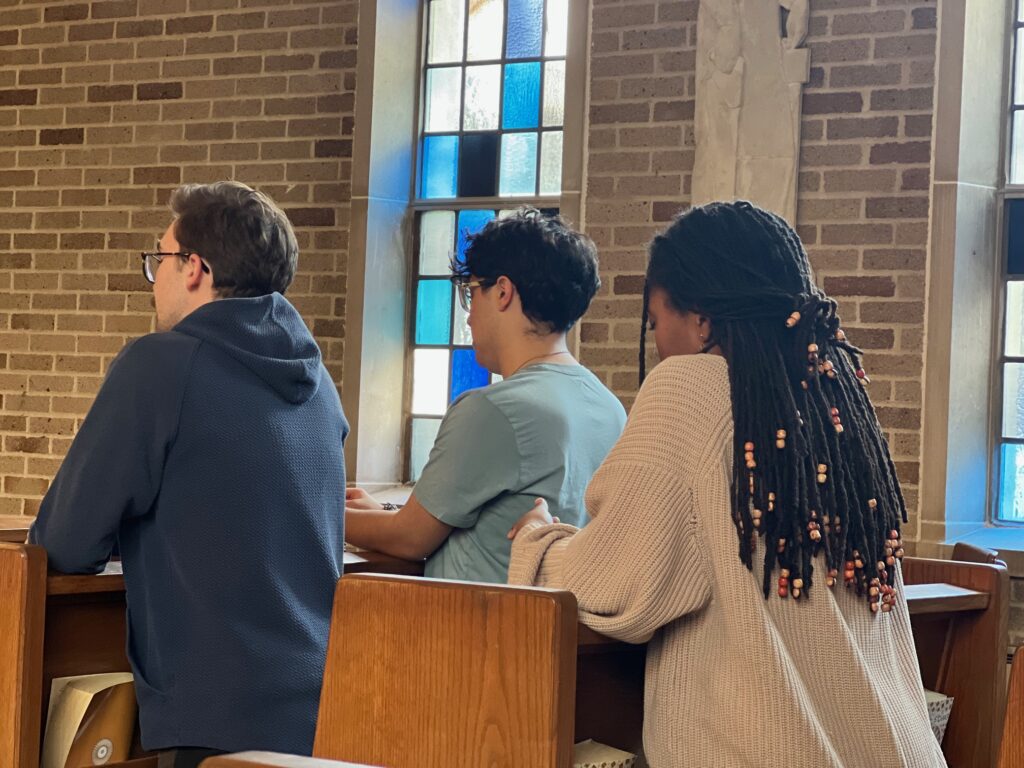 The first few days of Lent, between Ash Wednesday and the first Sunday of Lent are what I jokingly refer to as the “free trial period”. Perhaps you had great ambitious plans for your prayer, fasting, and almsgiving well before Ash Wednesday and now you are living into what that will look like in your day-to-day life, considering if you can manage this for all 40 days.
The first few days of Lent, between Ash Wednesday and the first Sunday of Lent are what I jokingly refer to as the “free trial period”. Perhaps you had great ambitious plans for your prayer, fasting, and almsgiving well before Ash Wednesday and now you are living into what that will look like in your day-to-day life, considering if you can manage this for all 40 days. In this week’s Gospel for the first Sunday of Lent, we hear about Jesus’ temptation in the desert. “Filled with the Holy Spirit”, He perseveres against the devil’s lies and tempting bodily desires. What can we learn from Jesus? While earthly goods may be satisfying, they are worthless if you forget there is more to God’s plan for you. Not letting temptation replace following God first and foremost is a great challenge. But so long as we are likewise “filled with the Holy Spirit”, we will be perfectly full.
In this week’s Gospel for the first Sunday of Lent, we hear about Jesus’ temptation in the desert. “Filled with the Holy Spirit”, He perseveres against the devil’s lies and tempting bodily desires. What can we learn from Jesus? While earthly goods may be satisfying, they are worthless if you forget there is more to God’s plan for you. Not letting temptation replace following God first and foremost is a great challenge. But so long as we are likewise “filled with the Holy Spirit”, we will be perfectly full. Near the end of last semester, I unexpectedly discovered I would need a new living situation. Trying to find an affordable place within walking distance of campus was a source of some stress, and seeking out options added to my already very busy schedule.
Near the end of last semester, I unexpectedly discovered I would need a new living situation. Trying to find an affordable place within walking distance of campus was a source of some stress, and seeking out options added to my already very busy schedule.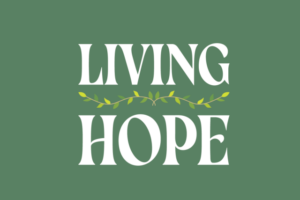 As a Mom of two little boys—one a toddler and the other a seven months old—sleep deprivation is a constant companion. The long, restless nights and the endless demands of tiny humans can make the days feel heavy and the future uncertain. Yet, in this Lenten season, I find comfort and strength in the words of Jeremiah 29:11: “For I know the plans I have for you, declares the Lord, plans to prosper you and not to harm you, plans to give you hope and a future.”
As a Mom of two little boys—one a toddler and the other a seven months old—sleep deprivation is a constant companion. The long, restless nights and the endless demands of tiny humans can make the days feel heavy and the future uncertain. Yet, in this Lenten season, I find comfort and strength in the words of Jeremiah 29:11: “For I know the plans I have for you, declares the Lord, plans to prosper you and not to harm you, plans to give you hope and a future.”Academic Advisor
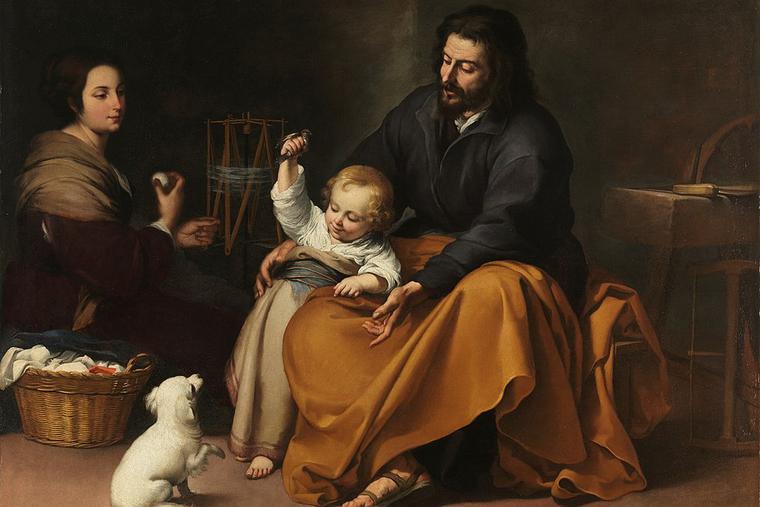
Juan A. Maldonado, II, MTS
Director of Academic Advising
Office of Student Success
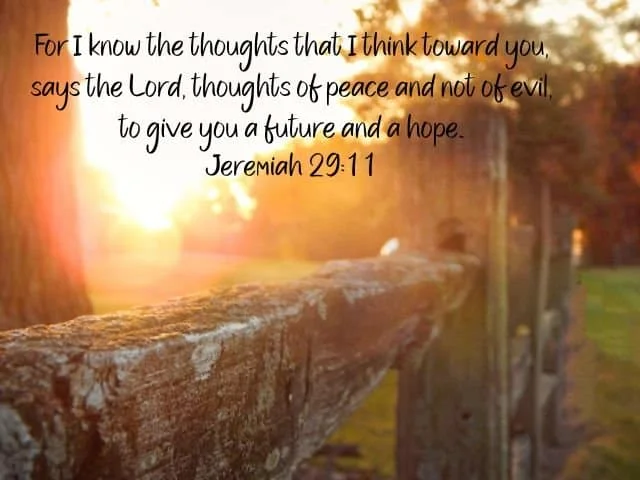 The later stages of my life have truly deepened my belief that God has always had a plan for me. It’s fascinating how, often without realizing it, we find ourselves wrapping our lives around decisions and people that we didn’t know we needed.
The later stages of my life have truly deepened my belief that God has always had a plan for me. It’s fascinating how, often without realizing it, we find ourselves wrapping our lives around decisions and people that we didn’t know we needed.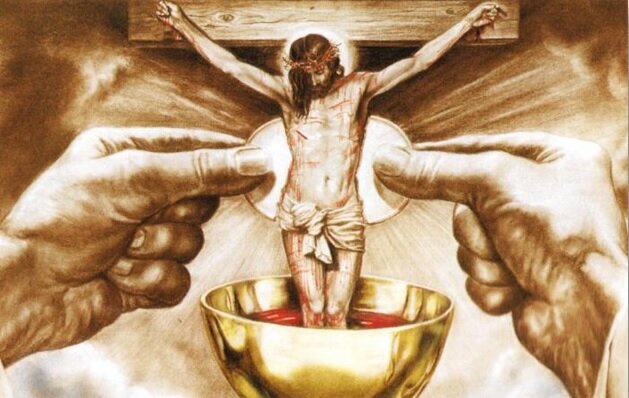 Hope in God’s Plan for Today
Hope in God’s Plan for Today Dr. Phyllis Florian, Psy.D., LP
Director of Mental Health and Wellness
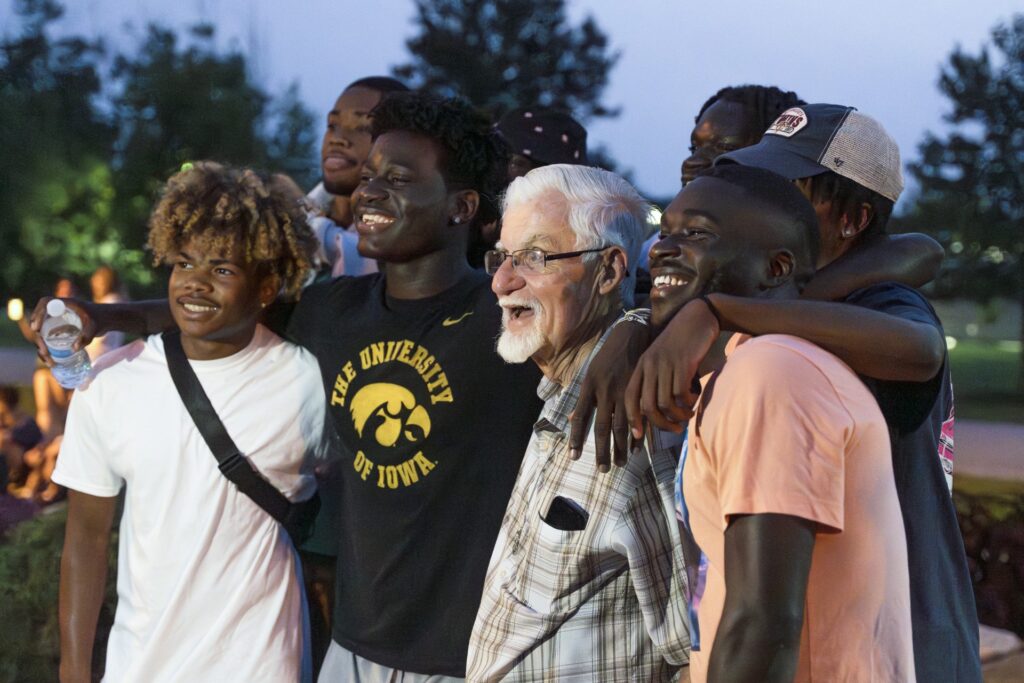 Honestly, I’m getting so tired of them: catch phrases, slogans. Ave Crux Spes Unica. Men with hope to bring. So on and so forth. Expressions and phrases like these often get repeated so frequently that they become worn out, overused—cliche’s if you will—losing their original meaning and impact, often becoming fodder for jokes. Lately at HoCro one such term is “Legacy—The Brothers’ Legacy”. While this helps to reflect an overall appreciation, I know for certain that my own legacy is not how much money I have or given away; nor is it a building named in my honor (I am speaking here for myself and no one else). All of this has got me doing a lot of thinking and praying lately. If people can’t tell who I am as a Brother of Holy Cross by the way I’m living my life day-to-day, then I’m the biggest of all failures. But I’m actually not worried because it’s not all about me. It never was and never will be. It’s all about God and those He puts in my life for a particular reason.
Honestly, I’m getting so tired of them: catch phrases, slogans. Ave Crux Spes Unica. Men with hope to bring. So on and so forth. Expressions and phrases like these often get repeated so frequently that they become worn out, overused—cliche’s if you will—losing their original meaning and impact, often becoming fodder for jokes. Lately at HoCro one such term is “Legacy—The Brothers’ Legacy”. While this helps to reflect an overall appreciation, I know for certain that my own legacy is not how much money I have or given away; nor is it a building named in my honor (I am speaking here for myself and no one else). All of this has got me doing a lot of thinking and praying lately. If people can’t tell who I am as a Brother of Holy Cross by the way I’m living my life day-to-day, then I’m the biggest of all failures. But I’m actually not worried because it’s not all about me. It never was and never will be. It’s all about God and those He puts in my life for a particular reason. Imagine you’re navigating a particularly tough semester (or, quite frankly, just any season of your life). The courses are demanding, your schedule is packed, and everything feels overwhelming.
Imagine you’re navigating a particularly tough semester (or, quite frankly, just any season of your life). The courses are demanding, your schedule is packed, and everything feels overwhelming. Hoping in God’s plan is never easy. It requires us to be fully vulnerable and expose ourselves in ways that make us uncomfortable. It requires a full surrender to the will of God and a patience for his response.
Hoping in God’s plan is never easy. It requires us to be fully vulnerable and expose ourselves in ways that make us uncomfortable. It requires a full surrender to the will of God and a patience for his response.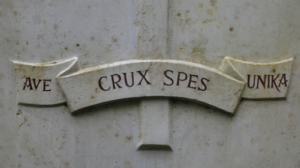 Ave crux, spes unica.
Ave crux, spes unica. This verse is a favorite for many people. In fact, it is hanging on the wall in my office. But have you ever wondered what the Lord means when he declares to give us “a future and a hope”? It seems like an odd thing, to give someone “a hope.” As I read it, scripture isn’t simply talking about the virtue of hope, but “a hope” seems to reference something tangible, experiential. So, as I ponder Jer 29:11, another quote I have on the same wall in my office comes to mind. It reads, “Trust the next chapter because you know the author.” I love this! Knowing that all things are in God’s hands, and because “we know all things work together for good for those who love God” (Rom 8:28), we know we are promised something that is “a hope.”
This verse is a favorite for many people. In fact, it is hanging on the wall in my office. But have you ever wondered what the Lord means when he declares to give us “a future and a hope”? It seems like an odd thing, to give someone “a hope.” As I read it, scripture isn’t simply talking about the virtue of hope, but “a hope” seems to reference something tangible, experiential. So, as I ponder Jer 29:11, another quote I have on the same wall in my office comes to mind. It reads, “Trust the next chapter because you know the author.” I love this! Knowing that all things are in God’s hands, and because “we know all things work together for good for those who love God” (Rom 8:28), we know we are promised something that is “a hope.”
Since last September, I’ve been in a very long season of challenges. The challenges came one after the other without a break and often left me feeling like I was standing in the ocean being hit by continual waves where I was losing my footing. What were the waves? My mom suffered a stroke leading to extensive care for her and my dad including constant out of town travel; two months of poor health fighting RSV and pneumonia; my mom’s eventual death and helping my dad with all that brings; nursing a sick dog back to health for over a month; the death of a dear uncle; a cousin’s cancer diagnosis; and trying to support various friends as they faced life altering challenges.
During this season, I have been grateful for the two signs in my office that became visible reminders of God’s truth, and His promises to me. Both the Hebrew and Greek translation of “a hope” means to have a “confident expectation” for what God has promised. And I know the author of every chapter – the One who created me, Who knows every hair on my head, died for my sins, and holds me in the palm of His hand. For me, holding on to the promise of “a future and a hope” through this season of suffering means I am ASSURED that God has good things in store for me; not only that the storms will eventually pass but that going through these storms will have a purpose in my life and will ultimately show themselves producing good fruit.
As spring is budding all around us and we enter the holiest of weeks, let us all be reminded that the Lord always has the last word, and that word is the promise of His victory on the cross: Resurrection
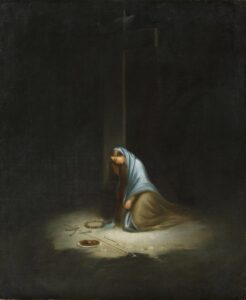 I have learned a lot about the experience of prayer in the last months since my sweet granddaughter, Gracie, was diagnosed with brain cancer. I have prayed nearly every waking moment since December. Always asking God that she would be healed, be comforted and be given strength. I do not doubt that God hears my prayers and the promised prayers of many people. Not a day goes by that someone does not tell me or send a message of their prayers for Grace. I am so grateful for every prayer. Gracie grows stronger daily and meets every step of her treatments with courage and confidence. During the intensity of these days, my mind is filled the sacred noise of pleads, lamentations, Hail Marys, novenas, and prayers to St. Andre Bissette and St. Joseph.
I have learned a lot about the experience of prayer in the last months since my sweet granddaughter, Gracie, was diagnosed with brain cancer. I have prayed nearly every waking moment since December. Always asking God that she would be healed, be comforted and be given strength. I do not doubt that God hears my prayers and the promised prayers of many people. Not a day goes by that someone does not tell me or send a message of their prayers for Grace. I am so grateful for every prayer. Gracie grows stronger daily and meets every step of her treatments with courage and confidence. During the intensity of these days, my mind is filled the sacred noise of pleads, lamentations, Hail Marys, novenas, and prayers to St. Andre Bissette and St. Joseph.
Among the ways I like to pray and reflect on Scripture is to experience it through the perspectives of the various characters. On Palm Sunday, the Gospel reading was the Passion of Christ. This is read again today, on Good Friday. As you listen to the Gospel read aloud, I encourage you to experience it through the lens of one of the characters mentioned in the Gospel of John.

